
The Majestic Samaria Gorge: A Nature Lover's Paradise
Nestled in the White Mountains of Crete, Samaria Gorge is one of Europe's longest gorges and a must-visit destination for nature enthusiasts and hikers alike. This stunning natural wonder spans approximately 16 kilometers from the village of Omalos to the coastal village of Agia Roumeli. The gorge is part of the Samaria National Park, which is home to a rich variety of flora and fauna, including some rare and endangered species. The hike through Samaria Gorge is a journey through time and nature. As you traverse the rugged terrain, you will encounter breathtaking landscapes, from towering cliffs and lush forests to serene riverbeds and ancient ruins. The highlight of the trek is the Iron Gates (Sideroportes), a narrow passage where the cliffs on either side rise to a staggering height of 300 meters, leaving just a few meters between them. Aside from its natural beauty, Samaria Gorge also offers a glimpse into the rich cultural heritage of Crete. Along the path, you will find the abandoned village of Samaria, which was once home to a small community that lived in harmony with nature. The gorge is also dotted with ancient chapels and Byzantine ruins, adding a historical dimension to your adventure. Whether you are an avid hiker or simply looking to immerse yourself in the enchanting beauty of Crete, a visit to Samaria Gorge is an unforgettable experience. Just be sure to wear sturdy hiking shoes, bring plenty of water, and start your journey early in the day to make the most of your visit.
Local tips in Samaria Gorge
- Start your hike early in the morning to avoid the midday heat and crowds.
- Wear sturdy hiking shoes to navigate the rocky terrain safely.
- Bring plenty of water and snacks as there are limited facilities along the way.
- Check the weather forecast before your hike; the gorge may close in bad weather.
- Consider taking a guided tour for more insights into the natural and historical significance of the gorge.
- At the end of your hike, enjoy a refreshing swim in the Libyan Sea at Agia Roumeli.
The Majestic Samaria Gorge: A Nature Lover's Paradise
Nestled in the White Mountains of Crete, Samaria Gorge is one of Europe's longest gorges and a must-visit destination for nature enthusiasts and hikers alike. This stunning natural wonder spans approximately 16 kilometers from the village of Omalos to the coastal village of Agia Roumeli. The gorge is part of the Samaria National Park, which is home to a rich variety of flora and fauna, including some rare and endangered species. The hike through Samaria Gorge is a journey through time and nature. As you traverse the rugged terrain, you will encounter breathtaking landscapes, from towering cliffs and lush forests to serene riverbeds and ancient ruins. The highlight of the trek is the Iron Gates (Sideroportes), a narrow passage where the cliffs on either side rise to a staggering height of 300 meters, leaving just a few meters between them. Aside from its natural beauty, Samaria Gorge also offers a glimpse into the rich cultural heritage of Crete. Along the path, you will find the abandoned village of Samaria, which was once home to a small community that lived in harmony with nature. The gorge is also dotted with ancient chapels and Byzantine ruins, adding a historical dimension to your adventure. Whether you are an avid hiker or simply looking to immerse yourself in the enchanting beauty of Crete, a visit to Samaria Gorge is an unforgettable experience. Just be sure to wear sturdy hiking shoes, bring plenty of water, and start your journey early in the day to make the most of your visit.
When is the best time to go to Samaria Gorge?
Iconic landmarks you can’t miss
Iron Gates
Hike through Crete's natural wonder, Samaria Gorge, and witness the awe-inspiring Iron Gates, where towering cliffs meet in a dramatic display.
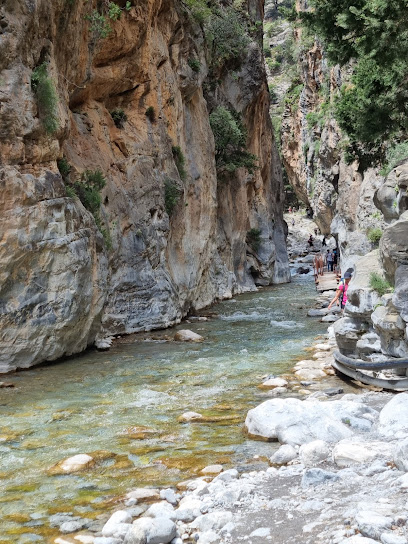
Castle Agia Roumeli
Explore the historic Castle Agia Roumeli in Crete: a 19th-century fortress with panoramic views of the Libyan Sea and Samaria Gorge.
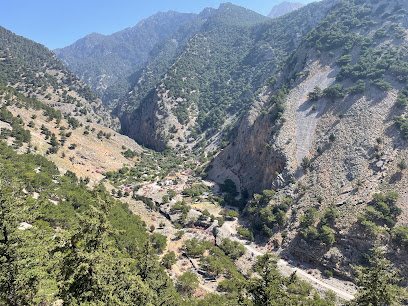
Kormokopou Cave
Discover Kormokopou Cave in Crete: a geological wonder steeped in local mythology, offering adventure and stunning natural beauty near Hora Sfakion.
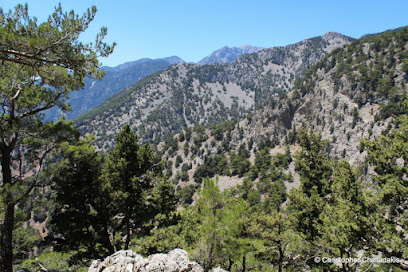
Ottoman Fort Kouledaki
Explore a hidden Ottoman fortress in Crete: Kouledaki offers history, stunning views, and a peaceful escape above Agia Roumeli.
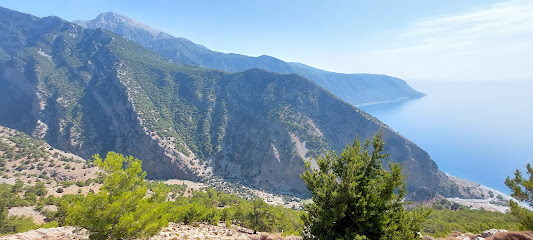
Unmissable attractions to see
Rimondi Fountain
Discover the historical beauty of Rimondi Fountain, a stunning landmark in Rethymno, Crete, reflecting the island's rich Venetian heritage.
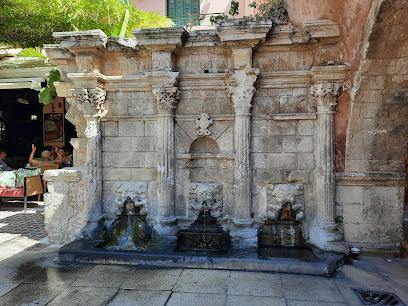
Εθνικός Δρυμός Σαμαριάς
Discover the stunning beauty of Samaria Gorge, a UNESCO World Heritage site in Crete, home to breathtaking landscapes and diverse wildlife.
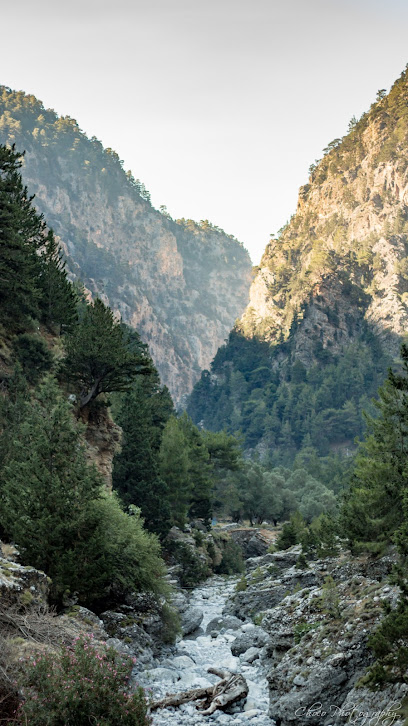
White Mountains Forest Preserve
Explore the breathtaking landscapes and diverse wildlife of the White Mountains Forest Preserve, Greece's natural paradise for outdoor enthusiasts and nature lovers.
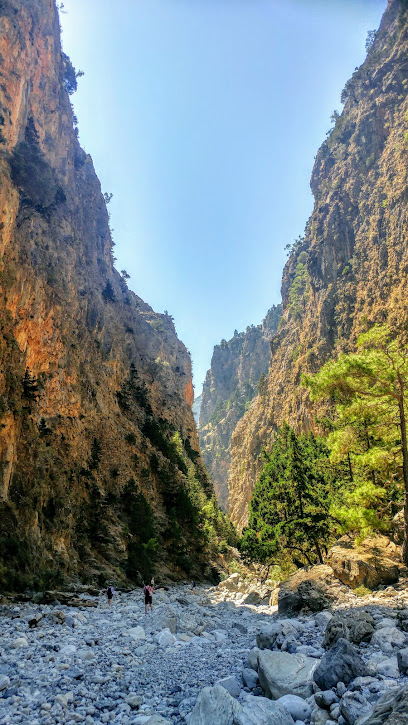
Eleftherios Venizelos House
Explore the rich history of Greece at Eleftherios Venizelos House, a museum dedicated to the legacy of one of Greece’s most influential statesmen in Chania.
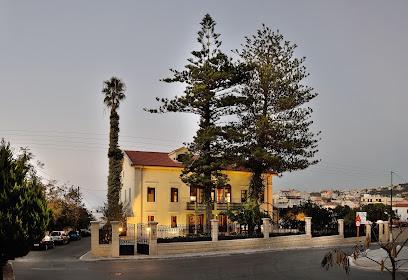
Paralia Grammenou
Experience the serene beauty of Paralia Grammenou, a hidden beach gem in Greece, perfect for relaxation and adventure amidst breathtaking landscapes.
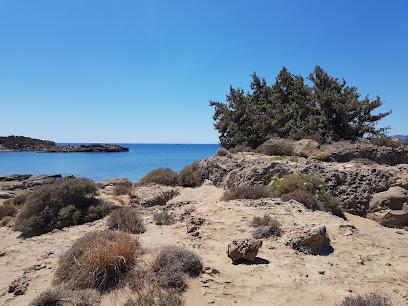
Omprogialos
Explore Omprogialos, a stunning beach in Vamos, Crete, where golden sands meet crystal-clear waters for the ultimate relaxation and adventure.
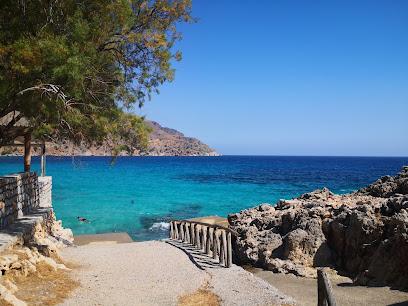
Church of the Four Martyrs
Discover the enchanting Church of the Four Martyrs in Rethymno, a masterpiece of Greek Orthodox architecture and a hub of local cultural traditions.
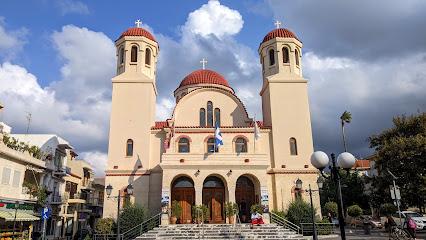
Iron Gates
Explore the breathtaking Iron Gates of Crete, a stunning natural gorge in Samaria National Park, perfect for hikers and nature lovers alike.
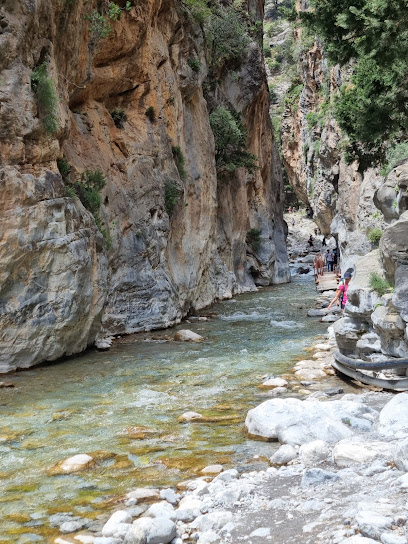
Chania Segway Tours
Discover the beauty of Chania, Crete, on an exciting Segway tour. Experience its history, culture, and stunning sights effortlessly.
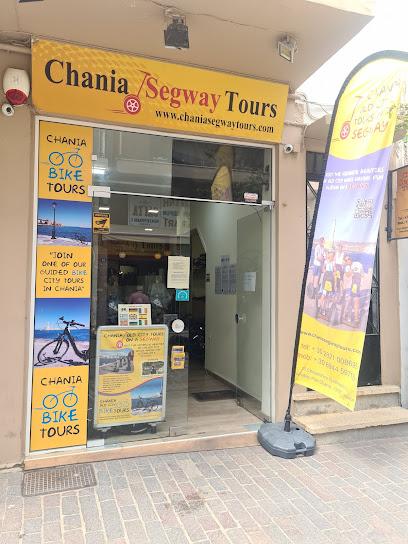
Lissos Beach
Discover the serene beauty of Lissos Beach, a hidden gem in Crete offering stunning waters, soft sands, and a peaceful escape from the crowds.
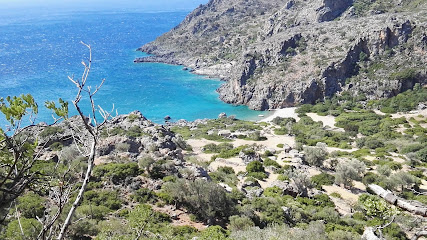
Olive and Oil Museum / Dermitzakis Folklore Collection
Explore the Olive and Oil Museum in Vatolakkos for an unforgettable journey into the heart of Cretan culture and the art of olive oil production.
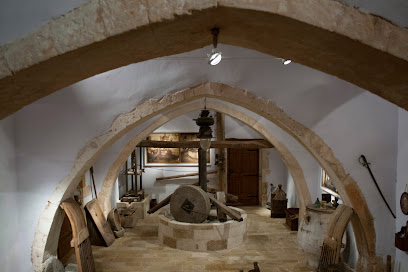
Orthodox Church of Holy Prophet Elias
Discover the Orthodox Church of Holy Prophet Elias in Chania, a serene spot offering stunning views and a rich cultural experience in the heart of Crete.
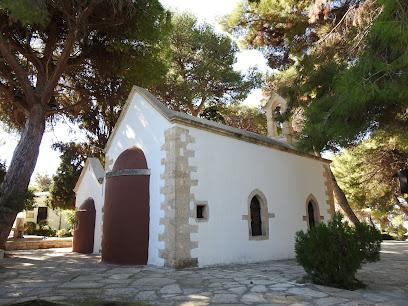
Greleskas Observatory
Discover the beauty of birdwatching at Greleskas Observatory in Anatolikos Selinos, where nature and tranquility come together in a breathtaking setting.
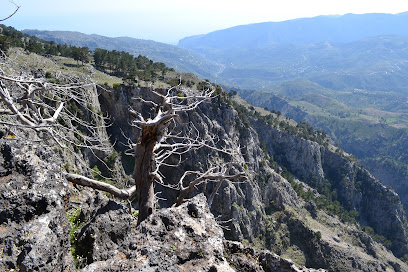
Tzanis Cave
Discover the breathtaking Tzanis Cave in Crete, where natural beauty meets history, creating an unforgettable experience for all travelers.
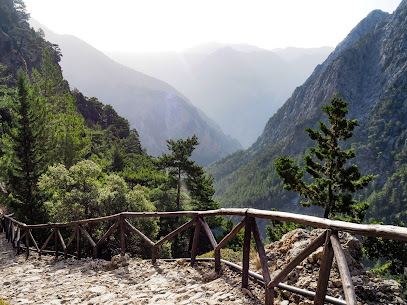
Castle Agia Roumeli
Discover the historical charm and breathtaking views of Castle Agia Roumeli, a hidden gem on the stunning island of Crete.
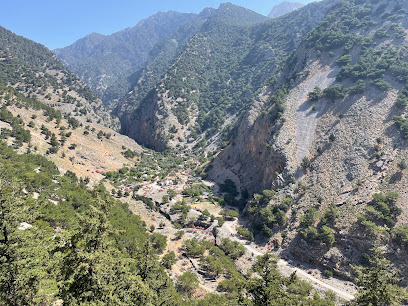
Essential places to dine
Rousios
Experience authentic Greek cuisine at Rousios in Agia Roumeli, where tradition meets stunning landscapes and unforgettable flavors.
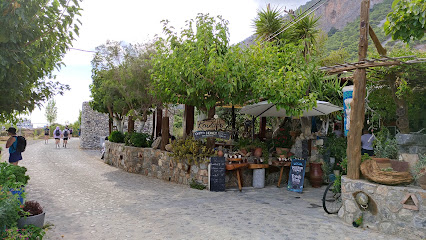
SAMARIA
Experience authentic Greek cuisine at Samaria, where every meal comes with stunning sea views in Agia Roumeli.
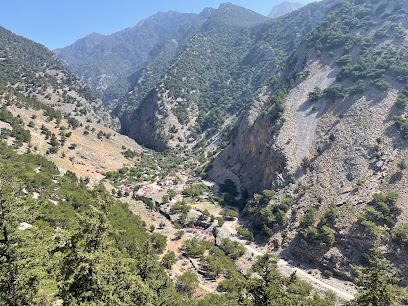
Taverna Tarra
Experience authentic Greek cuisine at Taverna Tarra in Agia Roumeli – where flavor meets tradition amidst stunning natural beauty.
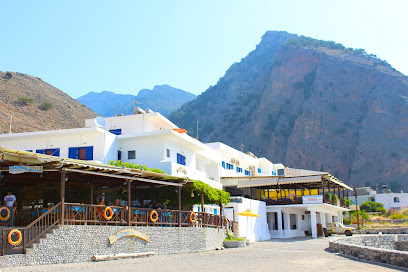
Pension Paradise
Experience authentic Greek cuisine at Pension Paradise in Agia Roumeli - where flavor meets breathtaking coastal views.
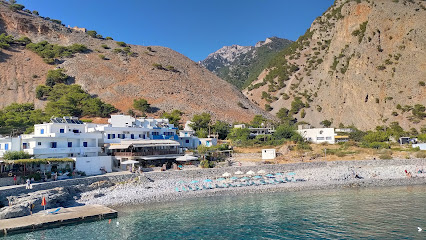
Markets, malls and hidden boutiques
Samaria Gorge
Experience the stunning landscapes and rich biodiversity of the Samaria Gorge, a must-visit natural wonder in Crete, Greece.
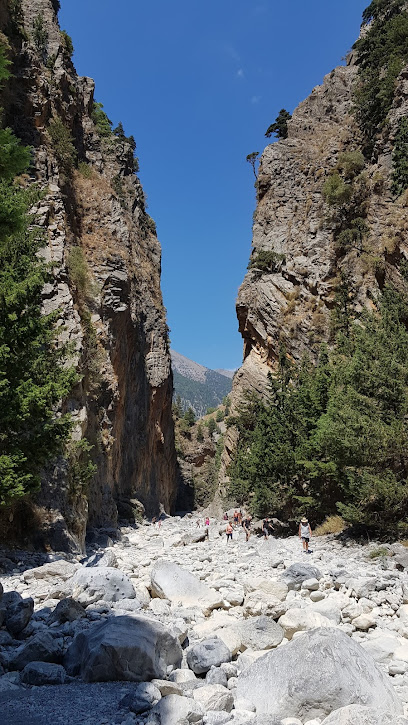
Olive wood Art Shop
Explore the Olive Wood Art Shop in Topolia for handcrafted treasures that embody the essence of Cretan culture and artistry.
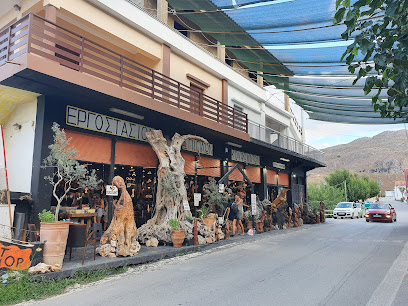
Temple Gift Shop
Discover the unique charm of Temple Gift Shop in Chania, where handmade mosaic lamps and authentic Greek souvenirs await every traveler.
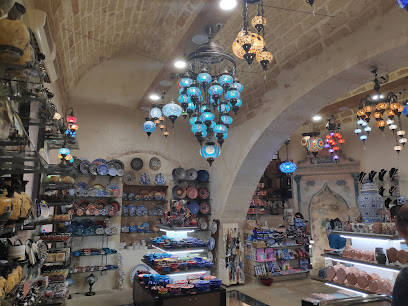
Mati Boutique (jewellery & gifts)
Explore Mati Boutique in Paleochora for unique jewelry and gifts that embody the spirit of Greek craftsmanship.
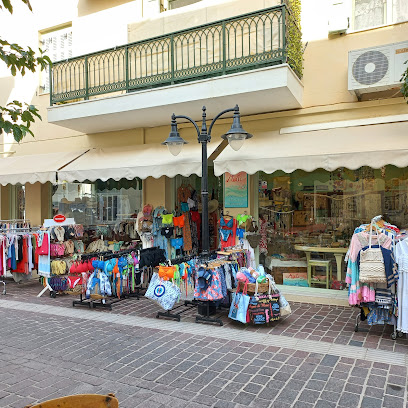
Memorabilia
Discover unique local gifts and souvenirs at Memorabilia in Chania, capturing the essence of Crete in every delightful item.
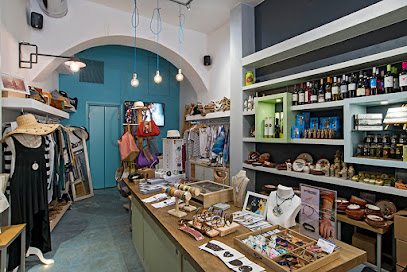
KURKUTA
Explore Kurkuta in Chania - a treasure trove of unique souvenirs and local crafts that capture the essence of Crete.
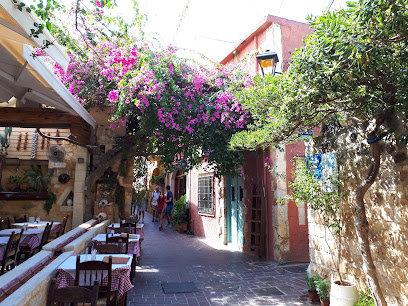
Greek Unique Concept Gift Store
Explore the Greek Unique Concept Gift Store in Rethymno for authentic souvenirs and unique gifts that celebrate Greece's rich culture and artistry.
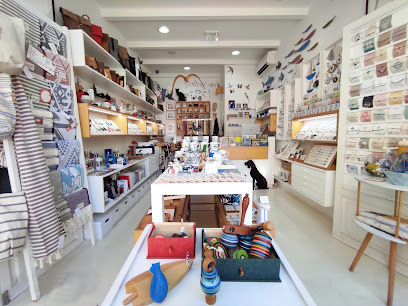
Jacobs little shop -Hand made ceramics/jewellery & gifts
Explore Jacobs Little Shop in Agia Marina for handcrafted ceramics, unique jewelry, and unforgettable gifts that embody local artistry.
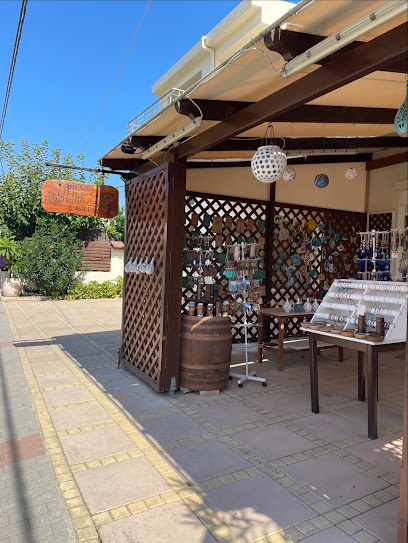
Mini Art Shop
Explore the Mini Art Shop in Chania for unique handmade gifts and art that capture the essence of local culture and creativity.
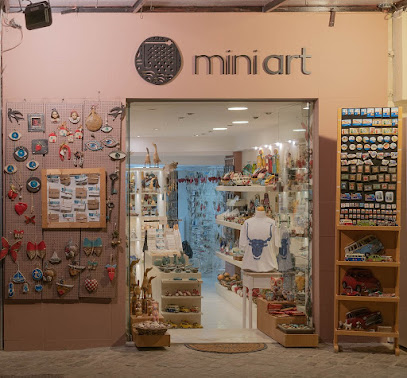
Pelican Supermarket
Discover Pelican Supermarket in Sougia for authentic local products and a cheerful shopping experience during your Greek getaway.
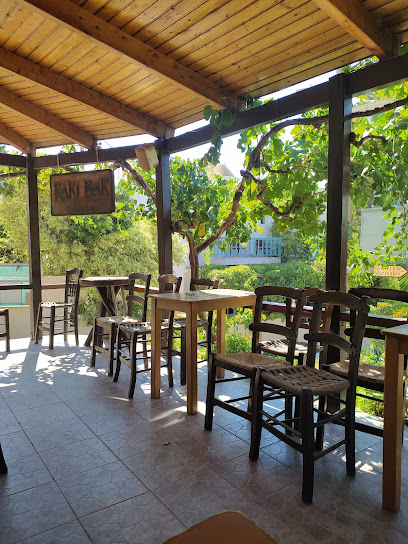
Supermaket Entrée Ou Sortie Village
Discover local flavors and essentials at Supermarket Entrée Ou Sortie Village in Hora Sfakion, the perfect stop for every traveler.
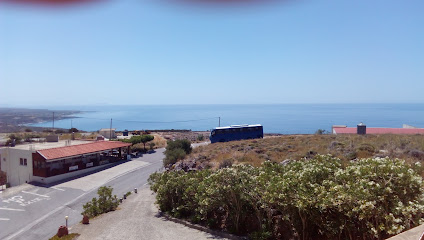
Canea T Shirt Souvenirs
Explore Canea T Shirt Souvenirs in Chania for unique gifts and authentic Cretan apparel, capturing the spirit of your Greek adventure.
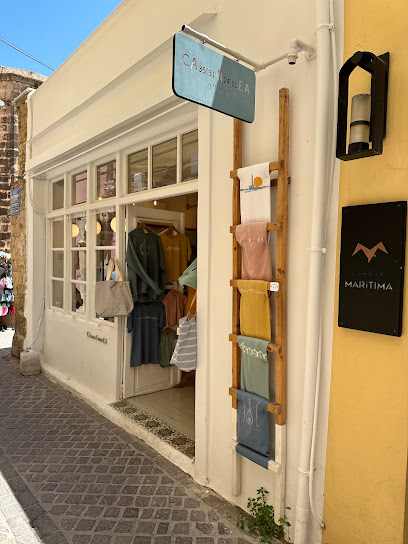
Eva's Treasure's
Explore Eva's Treasures in Kandanos for unique fashion accessories, souvenirs, and local novelties that capture the spirit of Greece.
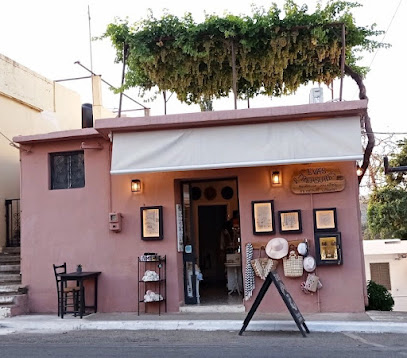
Rempetiko
Explore Rempetiko, a charming grocery store in Kantanos-Selino offering fresh local products and a taste of authentic Greek culture.
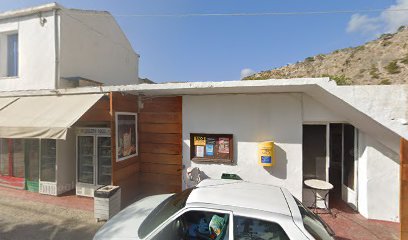
MALAMAS MARKET
Discover fresh local produce and authentic Greek flavors at Malamas Market in Agia Roumeli, a culinary paradise for every traveler.

Essential bars & hidden hideouts
Sinagogi coctail bar
Discover Sinagogi Cocktail Bar in Chania, where vibrant nightlife meets exquisite cocktails in a charming setting.
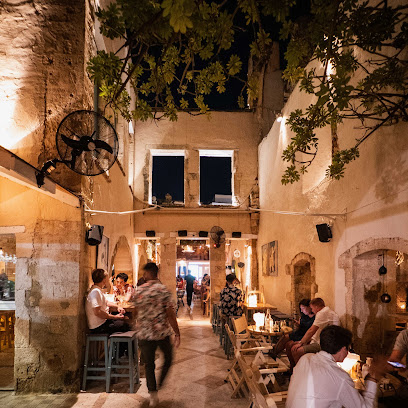
Το μοναστήρι του καρόλου
Discover the charm of Karolos Cocktail Bar in Chania, Crete - a perfect blend of innovative cocktails and serene garden ambiance.
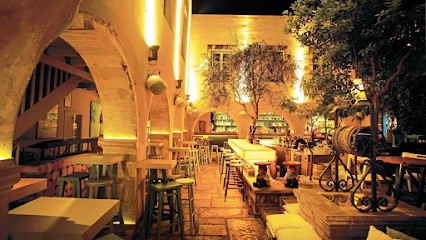
Avalon Rock Pub Chania
Discover Avalon Rock Pub in Chania, where the lively atmosphere and great music come together for an unforgettable night out.
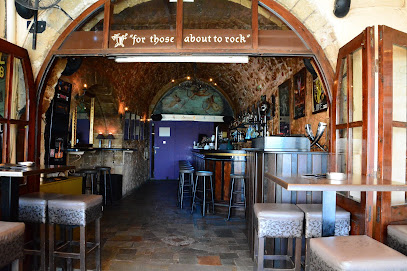
Beer Raki
Discover the essence of Cretan hospitality at Beer Raki, where local flavors and a lively atmosphere come together in the heart of Chania.
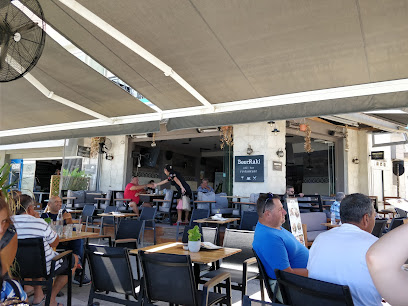
Calypso restaurant
Experience the flavors of Greece at Calypso Restaurant in Agia Roumeli, where fresh seafood meets stunning coastal views.
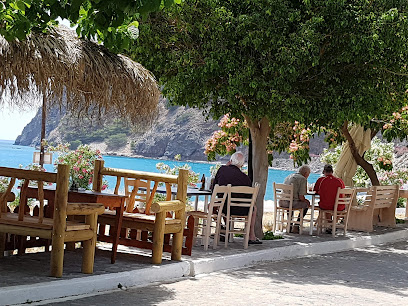
SAMARIA
Discover authentic Greek cuisine at Samaria in Agia Roumeli, where stunning views and delicious dishes await every visitor.
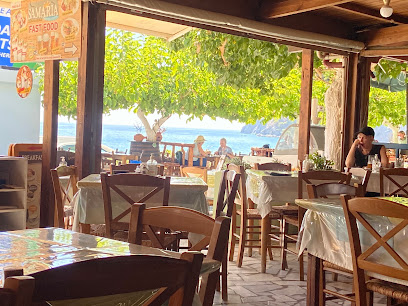
Βoulevard of broken dreams
Experience the vibrant nightlife at Boulevard of Broken Dreams in Chania, where innovative cocktails and a lively atmosphere await.
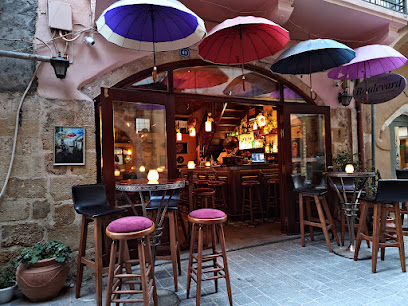
Barfly
Experience the vibrant nightlife at Barfly in Chania, where creative cocktails and a lively atmosphere await every night.
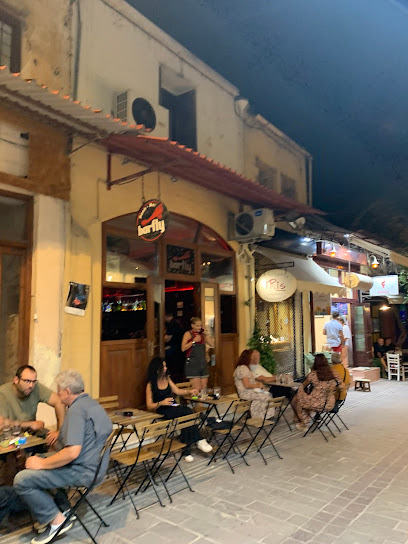
Taverna Tarra
Discover Taverna Tarra in Agia Roumeli for fresh, authentic Greek cuisine with stunning views of the Libyan Sea, perfect for every traveler.
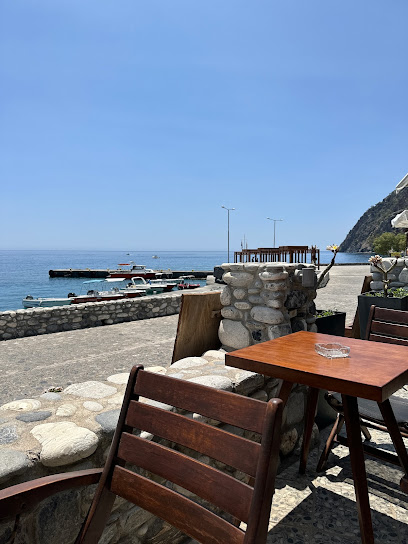
Tsalikis Fishermen Bar
Discover the coastal charm of Chania at Tsalikis Fishermen Bar, where fresh seafood meets stunning sea views in a relaxed atmosphere.
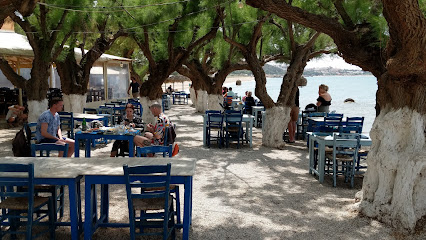
Synapsis - Gathering Bar
Discover the vibrant Synapsis Bar in Chania for an unforgettable night of drinks, music, and lively conversations in a stunning Cretan setting.
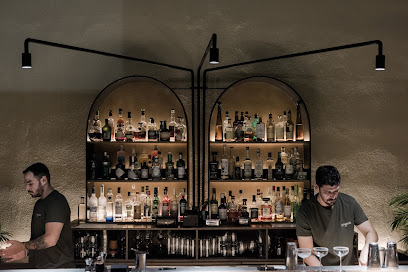
Kyma Cafe & Bar
Discover the perfect blend of relaxation and vibrant atmosphere at Kyma Cafe & Bar in Agia Roumeli, where stunning sea views meet delightful refreshments.
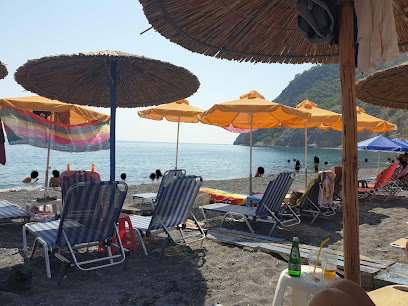
ALMIRIKI seaside coffee bar
Discover ALMIRIKI seaside coffee bar in Chania for a delightful blend of refreshing drinks and breathtaking coastal views, perfect for every traveler.
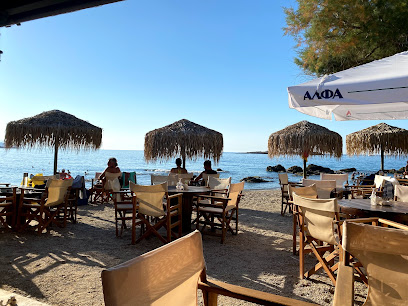
POSEIDON COCKTAIL BEACH BAR
Discover the beauty of Agia Roumeli at Poseidon Cocktail Beach Bar, where exquisite cocktails meet breathtaking sea views for an unforgettable experience.
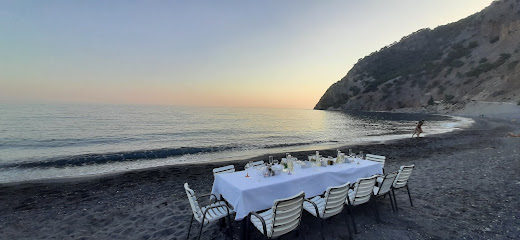
Local Phrases about Samaria Gorge
-
- HelloΓεια σας
[Ya sas] - GoodbyeΑντίο
[Adio] - YesΝαι
[Ne] - NoΌχι
[Ohi] - Please/You're welcomeΠαρακαλώ
[Parakalo] - Thank youΕυχαριστώ
[Efharisto] - Excuse me/SorryΣυγνώμη
[Signomi] - How are you?Πώς είσαι;
[Pos ise;] - Fine. And you?Καλά. Εσύ;
[Kala. Esi;] - Do you speak English?Μιλάτε Αγγλικά;
[Milate Agglika;] - I don't understandΔεν καταλαβαίνω
[Den katalaveno]
- HelloΓεια σας
-
- I'd like to see the menu, pleaseΘα ήθελα να δω το μενού, παρακαλώ
[Tha ithela na do to menou, parakalo] - I don't eat meatΔεν τρώω κρέας
[Den troo kreas] - Cheers!Υγεία!
[Ygeia!] - I would like to pay, pleaseΘα ήθελα να πληρώσω, παρακαλώ
[Tha ithela na plirosso, parakalo]
- I'd like to see the menu, pleaseΘα ήθελα να δω το μενού, παρακαλώ
-
- Help!Βοήθεια!
[Voithia!] - Go away!Φύγε!
[Fyge!] - Call the Police!Καλέστε την Αστυνομία!
[Kaleste tin Astynomia!] - Call a doctor!Καλέστε γιατρό!
[Kaleste giatro!] - I'm lostΈχω χαθεί
[Eho hathi] - I'm illΕίμαι άρρωστος
[Ime arrostos]
- Help!Βοήθεια!
-
- I'd like to buy...Θα ήθελα να αγοράσω...
[Tha ithela na agoraso...] - I'm just lookingΑπλά κοιτάω
[Apla kitao] - How much is it?Πόσο κοστίζει;
[Poso kostizi;] - That's too expensiveΑυτό είναι πολύ ακριβό
[Afto ine poli akribo] - Can you lower the price?Μπορείτε να μειώσετε την τιμή;
[Borite na meiosete tin timi;]
- I'd like to buy...Θα ήθελα να αγοράσω...
-
- What time is it?Τι ώρα είναι;
[Ti ora ine;] - It's one o'clockΕίναι μία ώρα
[Ine mia ora] - Half past (10)Μισή (10)
[Mise (10)] - MorningΠρωί
[Proi] - AfternoonΑπόγευμα
[Apoyema] - EveningΒράδυ
[Vradi] - YesterdayΧθες
[Hthes] - TodayΣήμερα
[Simera] - TomorrowΑύριο
[Avrio] - 1Ένα
[Ena] - 2Δύο
[Dyo] - 3Τρία
[Tria] - 4Τέσσερα
[Tessera] - 5Πέντε
[Pente] - 6Έξι
[Exi] - 7Επτά
[Epta] - 8Οκτώ
[Okto] - 9Εννέα
[Ennea] - 10Δέκα
[Deka]
- What time is it?Τι ώρα είναι;
-
- Where's a/the...?Πού είναι ένα/το...;
[Pou ine ena/to...;] - What's the address?Ποια είναι η διεύθυνση;
[Pia ine i diefthinsi;] - Can you show me (on the map)?Μπορείτε να μου δείξετε (στο χάρτη);
[Borite na mou dixete (sto charti);] - When's the next (bus)?Πότε είναι το επόμενο (λεωφορείο);
[Pote ine to epomeno (leoforeio);] - A ticket (to ....)Ένα εισιτήριο (για το...);
[Ena isitirio (ya to...);]
- Where's a/the...?Πού είναι ένα/το...;
History of Samaria Gorge
-
Samaria Gorge is located on the island of Crete, which was once the center of the ancient Minoan civilization. This ancient culture, dating back to approximately 2700 to 1450 BCE, is considered one of the earliest advanced civilizations in Europe. The gorge's strategic location would have made it a vital passageway for Minoan traders and settlers moving between the northern and southern parts of the island.
-
During the Byzantine period, Samaria Gorge served as a refuge for Christians fleeing from Arab invaders. Byzantine fortifications and churches were constructed in and around the gorge, remnants of which can still be seen today. The gorge's natural defenses provided an ideal sanctuary for those seeking protection during turbulent times.
-
From the 13th to the 17th century, Crete fell under Venetian and later Ottoman control. Samaria Gorge played a crucial role as a hideout for Cretan rebels resisting these foreign rulers. The rugged terrain of the gorge provided a safe haven for insurgents and a base for launching guerrilla attacks against the occupying forces.
-
During World War II, the gorge became a significant site for the Cretan resistance against Nazi occupation. The local population used the gorge's difficult terrain to their advantage, organizing guerrilla warfare against German forces. Samaria Gorge served as a crucial escape route for Allied soldiers and Cretan fighters alike, adding a modern chapter to its history of resistance.
-
In 1962, Samaria Gorge was declared a national park by the Greek government, recognizing its unique natural beauty and historical significance. The park, which spans 18 kilometers, is home to diverse flora and fauna, including the endangered Cretan wild goat, or 'kri-kri'. This designation has helped preserve the gorge's pristine environment and protect its historical sites, making it a popular destination for hikers and history enthusiasts.
Samaria Gorge Essentials
-
Samaria Gorge is located on the island of Crete in Greece. The nearest airport is Chania International Airport (CHQ), approximately 70 kilometers away. From Chania, you can take a bus to Omalos, the northern entrance of the gorge. The bus journey takes around 1.5 hours. Alternatively, if you are staying in the southern part of Crete, you can reach the southern exit of the gorge at Agia Roumeli by ferry from the nearby town of Sfakia.
-
Public buses operated by KTEL run regularly from Chania to Omalos, the starting point of the Samaria Gorge hike. Local taxis are also available for a more comfortable ride. After completing the hike, you can take a ferry from Agia Roumeli to nearby coastal towns such as Sfakia or Paleochora, where buses and taxis are available to take you back to your accommodation. Renting a car can provide flexibility for exploring the surrounding areas.
-
The official currency in Greece is the Euro (EUR). Credit and debit cards are widely accepted in hotels, restaurants, and shops in larger towns. However, it's advisable to carry some cash, especially in more remote areas like the Samaria Gorge. ATMs are available in larger towns like Chania, but may not be found in smaller villages, so it is wise to withdraw sufficient cash before starting your hike.
-
Samaria Gorge is generally a safe destination for tourists. However, it is essential to take standard precautions. The terrain can be challenging, so sturdy hiking boots and proper gear are necessary. Avoid hiking alone and inform someone about your plans. There are no specific high-crime areas targeting tourists, but always keep an eye on your belongings and be aware of your surroundings. Also, be cautious of the weather conditions, as flash floods can occur.
-
In case of an emergency while hiking in the Samaria Gorge, dial 112 for immediate assistance. There are emergency shelters and first aid stations along the trail. For medical emergencies, the nearest hospital is in Chania. It's highly recommended to have travel insurance that covers medical emergencies and evacuation. Park rangers and guides are available along the trail and can assist in emergencies.
-
Fashion: Do wear sturdy hiking boots and comfortable clothing. Avoid flip-flops or open-toed shoes. Religion: Do respect local religious sites and dress modestly when visiting them. Public Transport: Do check the bus and ferry schedules in advance. Don't be late, as the services can be infrequent. Greetings: Do greet locals with a friendly 'Kalimera' (Good morning) or 'Kalispera' (Good evening). Eating & Drinking: Do try local delicacies at the tavernas in nearby villages. Don't forget to carry enough water and snacks for the hike.
-
To experience Samaria Gorge like a local, start your hike early in the morning to avoid the midday heat and crowds. Take time to explore the flora and fauna unique to the region. Engage with park rangers and locals to learn more about the history and significance of the gorge. After completing the hike, relax and enjoy a meal at a local taverna in Agia Roumeli, where you can savor traditional Cretan dishes and fresh seafood.
Nearby Cities to Samaria Gorge
-
Things To Do in Rethymno
-
Things To Do in Crete
-
Things To Do in Heraklion
-
Things To Do in Pyrgos
-
Things To Do in Santorini
-
Things To Do in Kalamata
-
Things To Do in Mykonos
-
Things To Do in Nafplio
-
Things To Do in Athens
-
Things To Do in Olympia
-
Things To Do in Kos
-
Things To Do in Bodrum
-
Things To Do in Delphi
-
Things To Do in Samos
-
Things To Do in Patras








